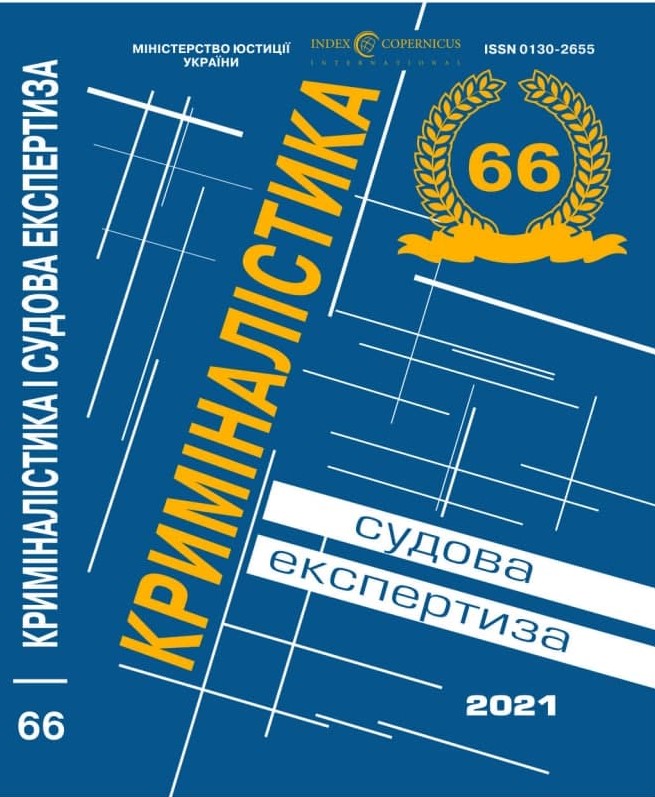
DOI: https://doi.org/10.33994/kndise.2021.66.61
V. Baraniak
In expert practice, questions often arise related to the separation of research objects from a mixture of dissimilar particles of solid materials, liquids of different densities, emulsions, and two-phase media. During the study, physical and chemical separation methods are used.
The choice of the separation method depends on the percentage composition and properties of the mixture and its constituent components. Expert research is carried out using various separation methods: by mass (inertial), by size, electrical, magnetic, radiometric, photometric, etc. Chemical separation is its separate type.
The analysis of expert practice indicates that separation is mainly applied during the forensic investigation of metals and alloys (solids), drugs (solids, liquid substances) and petroleum products (liquid substances).
The article analyzes the methods of separation at the preparatory stage of the expert study of micro-particles of precious metals and handicraft drugs.
Forensic investigation of products made of metals and alloys is one of the most difficult, since the detection and separation of micro-particles of the metal under study from other metal particles and their subsequent identification require the use of both chemical and instrumental research methods.
The separation of the metal under study from the mixture of other metal particles was carried out by the method of mechanical and magnetic separation and chemical (selective dissolution) separation.
In the course of the expert study opium acetylated using chromatographic methods difficulties often arise associated with separation of components due to the presence of large amounts of acetylated opium extractable from poppy straw ballast substances (in particular chlorophyll).
The use of an inertial separation method makes it possible to speed up the separation of an aqueous solution of a narcotic drug emulsion and an extracting organic solvent.
Key words: methods of separation, inertial separation, mechanical separation, magnetic separation, chemical separation, forensic examination of narcotic drugs, forensic examination of metals.










